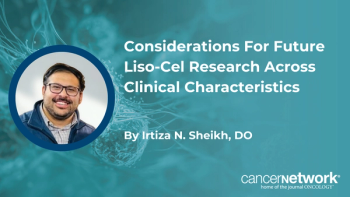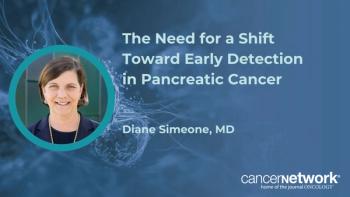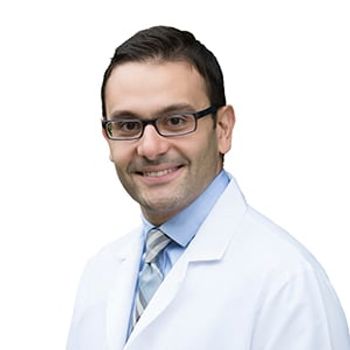
FDA Accepts sBLA of Nivolumab Plus Chemo in Resectable NSCLC
Based on results from the CheckMate-816 trial, the FDA has accepted a supplemental biological license agreement for nivolumab plus chemotherapy for patients with resectable non–small cell lung cancer.
The FDA has accepted a supplemental biologics license application for nivolumab (Opdivo) plus chemotherapy for patients with resectable non–small cell lung cancer, according to a press release from Bristol Myers Squibb.1
The application is supported by the results of the phase 3 CheckMate-816 trial (NCT02998528) which assessed the safety and efficacy of nivolumab plus ipilimumab (Yervoy) or chemotherapy vs chemotherapy alone. The data from the trial showed a statistically significant and clinically meaningful improvement in pathologic complete response (pCR) and event-free survival (EFS) when treatment was administered before surgery.
A Prescription Drug User Fee Act date has been set for July 13, 2022.
“The FDA’s acceptance of our application marks an important step in our effort to offer patients and physicians the first immunotherapy-based option that can be given before surgery to extend the time patients can continue living without disease progression or recurrence,” Abderrahim Oukessou, MD, vice president of thoracic cancers and development lead at Bristol Myers Squibb, said in the press release.
The randomized, open-label, multi-center trial CheckMate-816 trial accrued a total of 358 patients for the primary analysis. Patients received 360 mg of nivolumab plus histology-based platinum doublet chemotherapy every 3 weeks for 3 doses followed by surgery. The primary end points of the study were pCR and EFS, and secondary end points included overall survival, major pathologic response, and time to death or distant metastases.
Results from
Additionally, it was found that 83% of patients who received neoadjuvant nivolumab had surgery vs 75% in those receiving chemotherapy alone. Patients also had a higher rate of tumor resection in the nivolumab group at 83% vs 78% in the chemotherapy group. Between arms, surgery-related adverse effects (AEs) were similar.
Grade 3 to 4 AEs were observed in 34% of patients in the nivolumab arm and 37% in the chemotherapy arm. Investigators noted that surgery was rarely canceled based on AEs, and only 2 patients were affected in each arm.
“The current results from the CheckMate-816 study add to the growing body of evidence that using immunotherapy in cancers that have not yet progressed to metastatic disease may be an important tool for physicians, with 4 positive phase 3 trials with [nivolumab] in resectable cancers to date,” Oukessou said.
Nivolumab is currently approved in 18 different indications, and helps to treat other cancers such as melanoma, mesothelioma, renal cell carcinoma, lymphoma, and colorectal cancer.
References
1. U.S Food and Drug Administration accepts for priority review Bristol Myers Squibb’s application for Opdivo (nivolumab) plus chemotherapy as neoadjuvant treatment for resectable non–small cell lung cancer. News Release. Bristol Myers Squibb. February 28, 2022. Accessed February 28, 2022. https://bit.ly/35hpWTt
2. Ford PM, Spicer J, Lu S, et al. Nivolumab (NIVO) + platinum-doublet chemotherapy (chemo) vs chemo as neoadjuvant treatment (tx) for resectable (IB-IIIA) non-small cell lung cancer (NSCLC) in the phase 3 CheckMate 816 trial. Cancer Res. 2021;18(suppl 13):CT003. doi:10.1158/1538-7445.AM2021-CT003
Newsletter
Stay up to date on recent advances in the multidisciplinary approach to cancer.





































